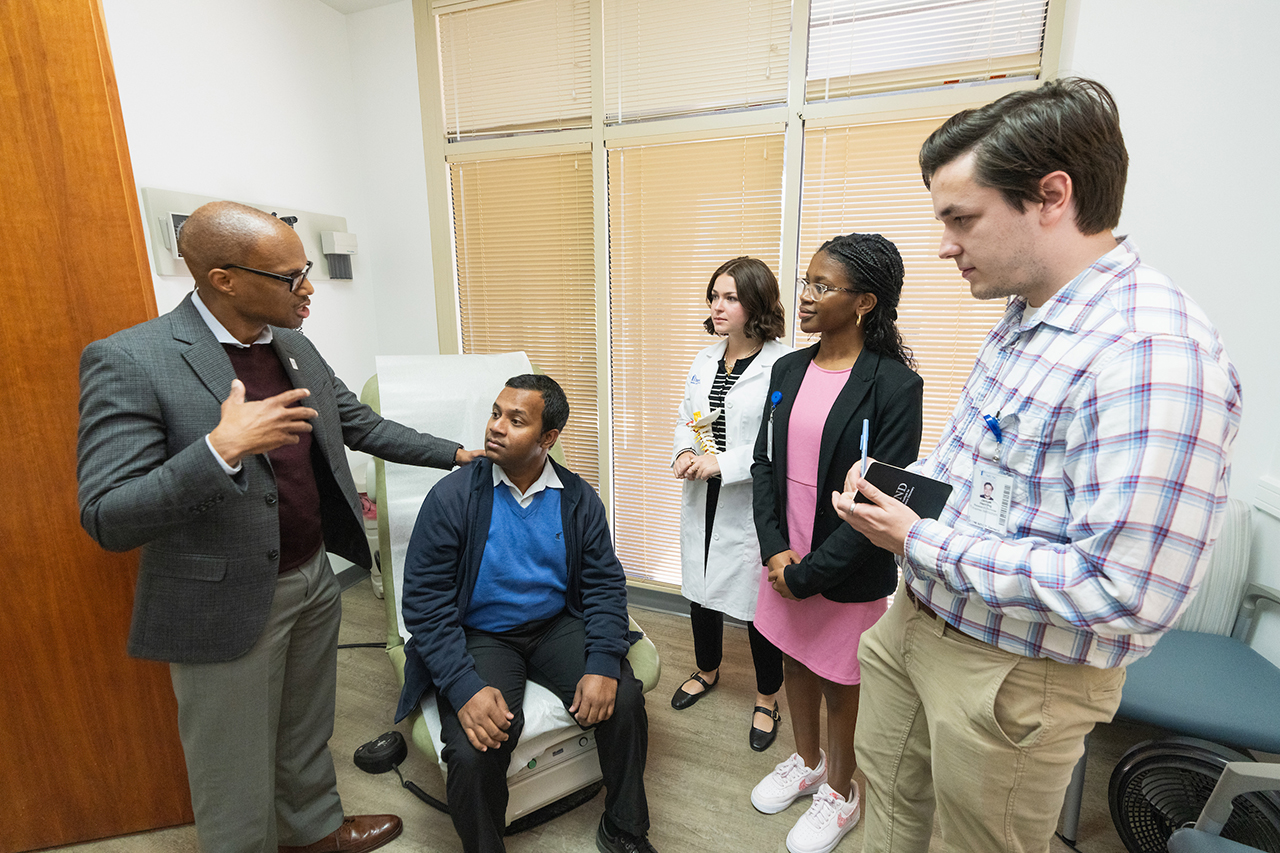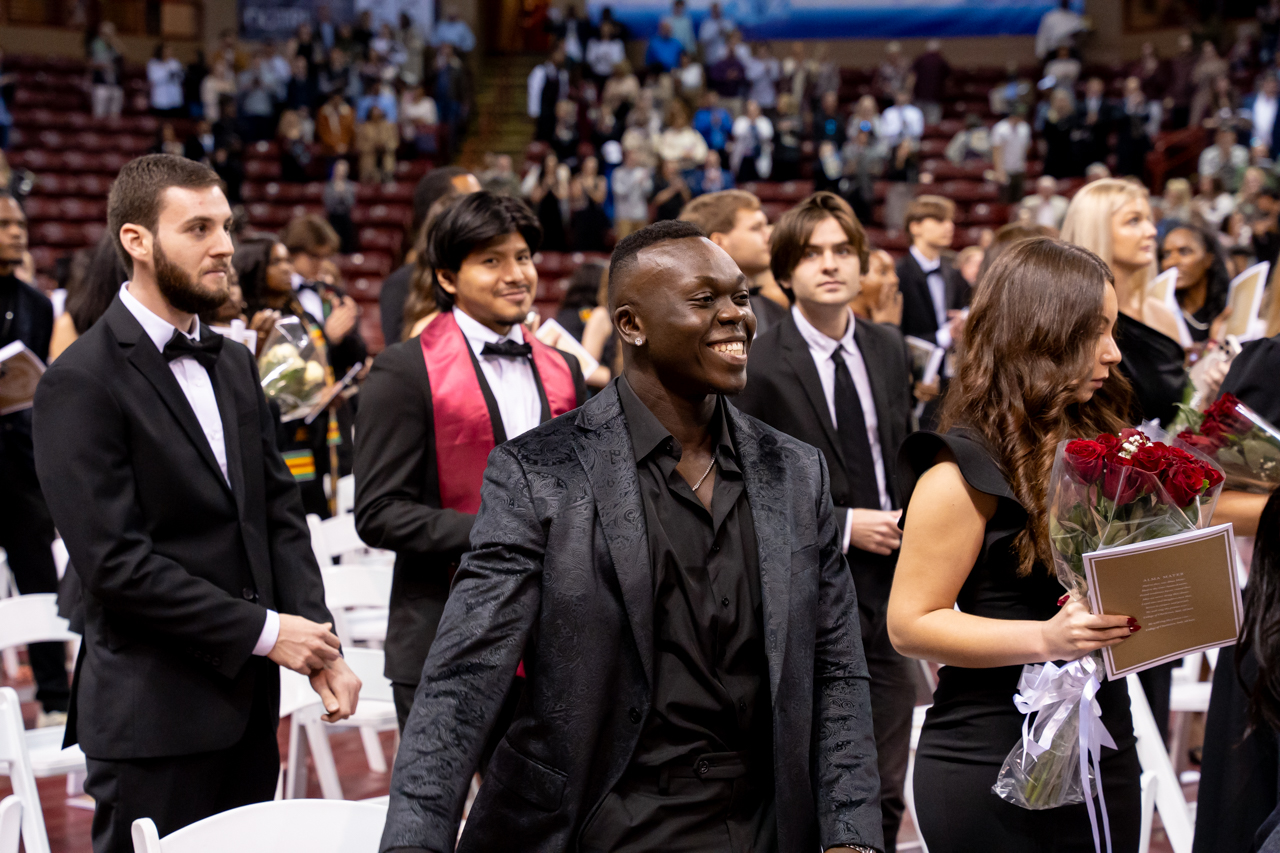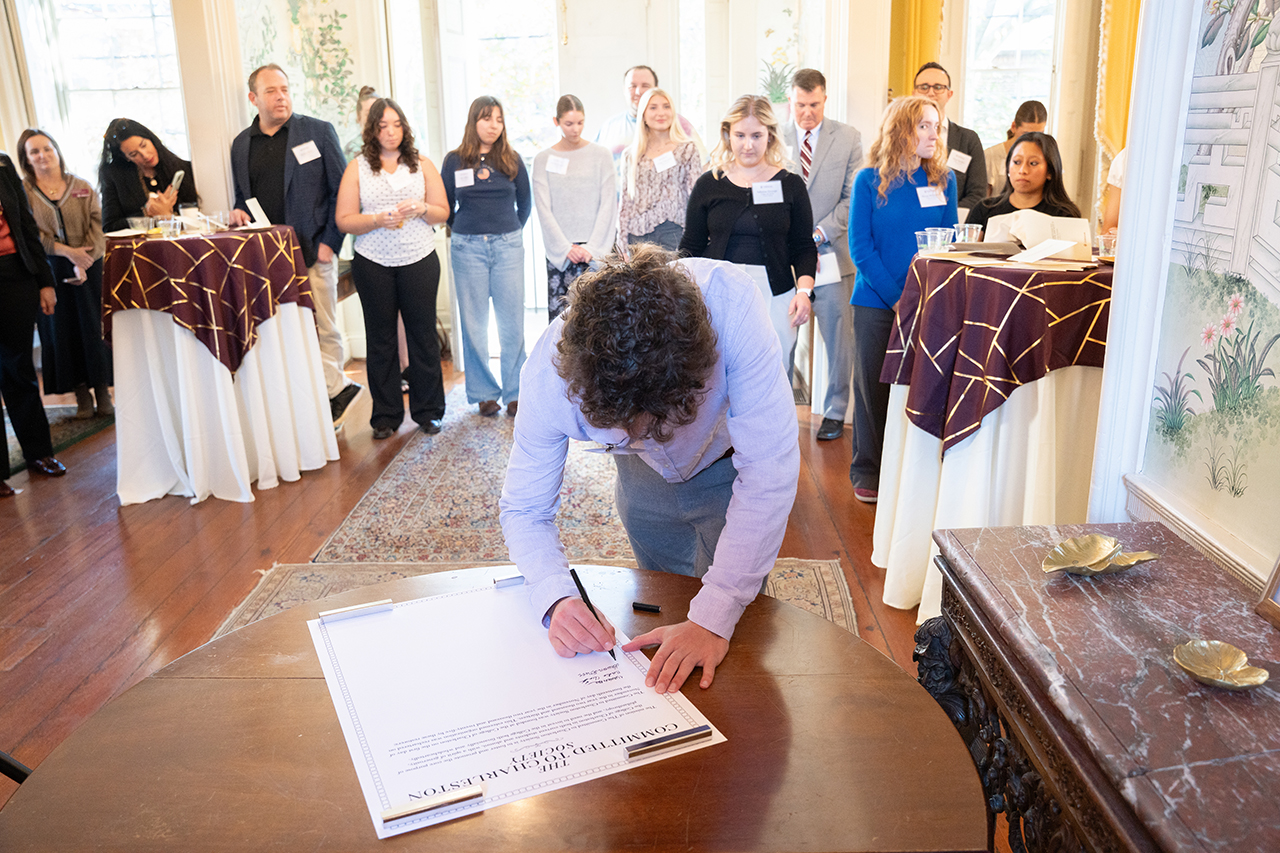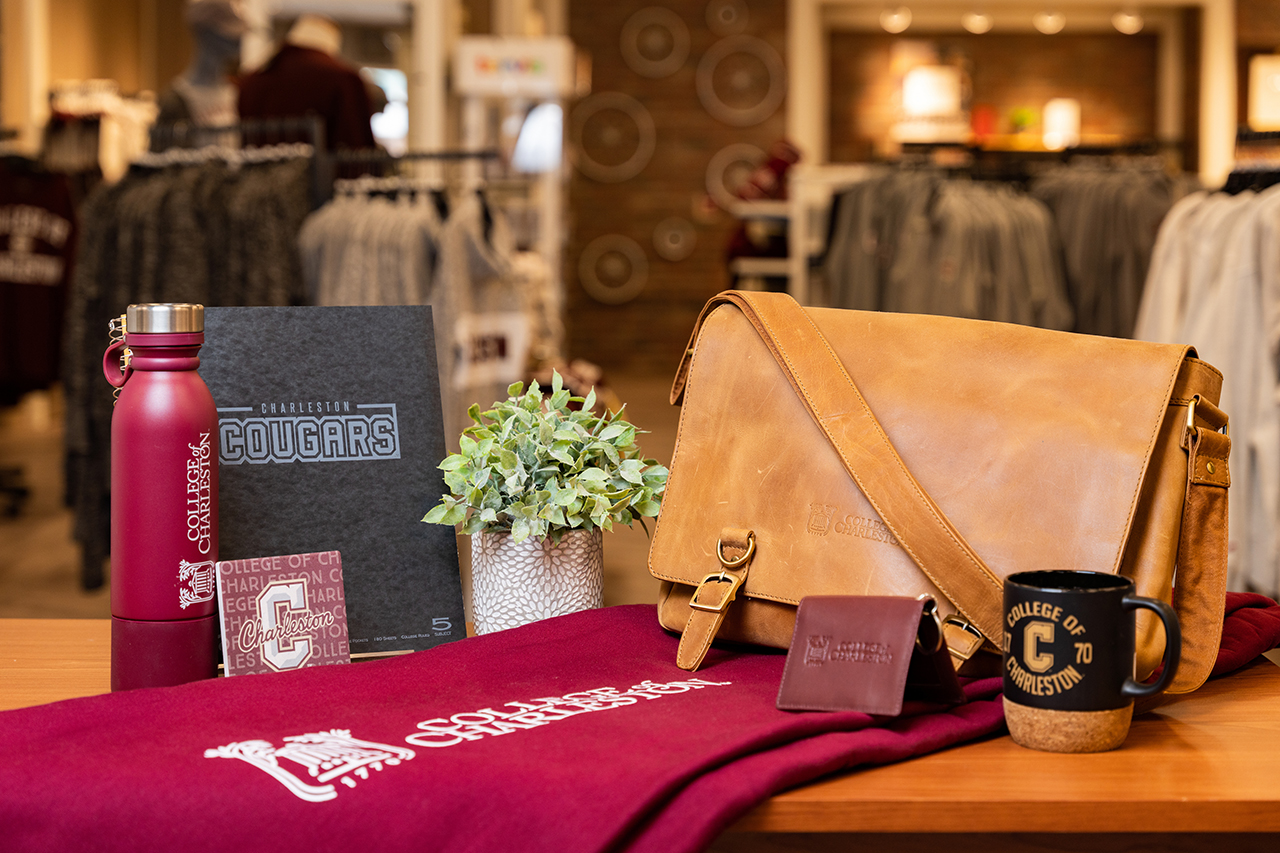The Ripple Effect: Inspiring Innovative Learning Through NUTIP
In this first installment of our Innovative Learning series, we meet MUSC neurosurgeon Dr. Nathan Rowland and the College of Charleston students he's inspiring through the student-led Neurosurgery Undergraduate Training and Innovation Program.

Above: Dr. Nathan Rowland (left) talks to an MUSC patient while being shadowed by CofC students (l–r) Hannah Parris, Kaycee Tompkins and Christian Herring as part of NUTIP, a student-led pre-med training partnership with the MUSC Department of Neurosurgery.
It’s early in the morning and the hospital is quiet. The only sound is the chatter from two nurses standing behind the desk who glance up as a man wearing a white lab coat breezes by. He’s closely followed by three College of Charleston Honors College students dressed in scrubs. In a soft, warm voice, he directs the students toward an empty room in the hospital.
“Can you walk into a room and connect with a patient? Because that’s what matters,” Dr. Nathan Rowland, a neurosurgeon at the Medical University of South Carolina (MUSC), tells the students. “The human-to-human connection is what medicine is all about, and that can’t be taught in the classroom.”
The students nod vigorously. They are in the hospital with Rowland as participants in the Neurosurgery Undergraduate Training and Innovation Program (NUTIP). They want to be doing what he’s doing. Helping people in need. Saving lives. So they listen to every word he says, scribbling notes and nodding their heads, their eyes never leaving their mentor’s face.
“The human-to-human connection is what medicine is all about, and that can’t be taught in the classroom.”
Dr. Nathan Rowland, Executive Director,
MUSC Institute for Neuroscience Discovery (MIND)
NUTIP – a collaborative venture between the COFC Honors College and MUSC – was founded by Abanob Hanna ’23 and Kirsten Snyder ’23 when they were undergraduates in the Honors College. Both of them wanted to go to med school after graduation and were fortunate to have a mentor like Beth Meyer-Bernstein, dean of the College of Charleston Honors College, who connected them to shadowing opportunities.
But not everyone has that kind of access.
The solution to that problem, as Hanna and Snyder saw it, was to develop a program that would give future pre-medical students at the Honors College access to the kind of hands-on shadowing experience they were fortunate enough to receive – and the all-important network they lacked.
“I’m honestly surprised that we were able to bring this program to life,” Hanna says. Although he and Snyder had an actual plan and persistently typed up emails to potential physicians at MUSC, they received many rejections. The two students learned quickly there are always setbacks when you’re trying to achieve a goal. “We continued to reach out to potential candidates until we came across Dr. Rowland, a physician willing to work with two unknown undergraduate students.”
Rowland smiles as he tells his story.
“I entered medical school as a dual degree student – M.D. and Ph.D.,” he says. “By the time I finished my Ph.D., I had no idea how I was going to use what I had studied in the lab in the real world as a physician. So, I actually tried to quit medical school.
“Everything changed the day one of my mentors, who was a neurologist, asked me to meet him in the lab,” Rowland continues, remembering that it was a Saturday, so the building was completely dark, and nobody was there to greet him or help him find the clinic. “I felt my way around until I ran into my mentor.”
“Oh, hey,” his mentor said, pushing the clinic door open. “I want you to meet someone.”
“He ushered me into a room and closed the door,” Rowland recalls. “And there – in the middle of that room – stood Muhammad Ali, the greatest heavyweight boxer of all time!”
Tune in for the next installment of our Innovative Learning series to learn how Dr. Rowland’s encounter with Muhammad Ali helped launch the student-led Neurosurgery Undergraduate Training and Innovation Program, thereby impacting the lives of CofC students, the surgical team at MUSC and the careers of many health care workers to come.



